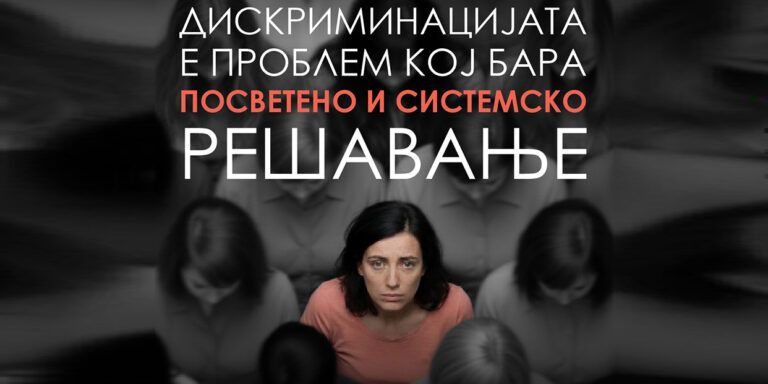Positive societal change is possible through Government and civil society organizations collaboration
Civica Mobilitas held its annual event, this year in collaboration with the Government of the Republic of North Macedonia, under the joint title National Conference of Civil Society Organizations – Civica Mobilitas National Forum.
The forum, held on November 15 at the Holiday Inn Hotel, was attended by over 200 representatives of civil society organizations from across the country. The event was greeted by Swiss Ambassador H.E. Veronique Ullmann, and speakers included Christian Mitskoski, Prime Minister; Aleksandar Kržalovski, Team Leader of Civica Mobilitas; Igor Janusev, General Secretary of the Government, as well as Izet Mežiti, First Deputy Prime Minister and Minister of Environment and Spatial Planning; Vesna Janevska, Minister of Education; Zlako Perinski, Minister for Local Self-Government; Zoran Ljutkov, Minister of Culture; and Stefan Andonovski, Minister for Digital Transformation.
Session 1: Opening Speeches
Ambassador H.E. Veronique Ullmann reflected on Switzerland’s support for civil society, emphasizing that while progress has been made, challenges remain, such as the polarization of society, politicization of civil society organizations, financial vulnerability, lack of transparency, and mistrust between the state and civil society. She noted that jointly overcoming these challenges would create the necessary conditions for civil society to become a credible partner to the state.
Prime Minister Christian Mitskoski, in his address, expressed confidence that through dialogue with civil society organizations, higher quality decisions can be made for societal change. “The essence of these meetings is that we must deliver,” he said, adding that activities should be implemented between this and the next event. “We are open to working together with the civil sector to find joint solutions to real problems,” he concluded, “I believe there is no greater transparency than that.”
Session 2: Government Collaboration with Civil Society Organizations
Improving trust between the Government and civil society organizations, as well as within society in general, is one of the key issues, according to Aleksandar Kržalovski, Team Leader of Civica Mobilitas. He invited the participants to use the forum in the spirit of collaboration.
The General Secretary of the Government, Igor Janusev, called on civil society organizations to be given time to prove that they can help.
Several civil society representatives shared questions from their colleagues. Andrej Sinih, Executive Director of the Association for Supporting People Living with HIV – “Stronger Together,” asked Igor Janusev about the upcoming practices regarding the functioning of the Council for Cooperation and the preparation of the Strategy for the Development of Civil Society. He also inquired about government preparedness to find solutions in consultation with civil society for the continued support of 8,000 citizens involved in HIV screening and protection programs.
Simona Mladenovska of the Balkan Civil Society Development Network (BCSDN) raised the issue of state funding, stressing the need for a clear methodology for allocating funds, as well as opportunities to increase this funding.
Tinka Kiteska, President of the Association for the Protection of the Rights and Interests of State Administration Employees and Protection of State Property “Fair and Professional,” asked whether civil society organizations could use state properties that are currently left to deteriorate.
“I am sure the government will not leave 8,000 people on the street,” Janusev responded regarding the HIV programs. He also announced that the preparation of the Real Estate Registry is nearing completion, and regarding state funding, he emphasized that the government needs to find the right way and mechanism for transparent fund allocation with civil society.
Session 3: Thematic Discussion with Ministers
Education, the environment, and local self-government are always among the hottest topics.
Minister of Education and Science Vesna Janevska addressed several questions from civil society organizations raised by Gordan Georgiev, President of the Forum for Policy Understanding. The questions concerned the involvement of civil society organizations in the development, implementation, and monitoring of the new national education strategy for 2026 and promoting volunteering through formal educational programs or state incentive measures. She was also asked about proposed laws for primary and secondary education, which, according to some findings, contradict the existing law on the prevention and protection from discrimination and commitments made through ratified conventions. Regarding the Strategy, Janevska noted that she had contacted around 50 civil organizations, sharing information to jointly arrive at a good solution. “In the preparation of the laws, civil organizations were involved, and many of their remarks were included,” she said, adding that volunteering and community service will be incorporated as extracurricular activities from the next school year. Regarding discrimination, the Minister emphasized that she will not allow any form of discrimination.
Environmental dialogue focused on regional landfills and the Ohrid and Prespa Lakes. Questions for First Deputy Prime Minister and Minister for Environment and Spatial Planning Izet Mežiti were raised by Bojana Stanojevska Pecurovska from the Center for Climate Change. Mežiti emphasized that this government has a different approach, saying, “It doesn’t matter which party is running the municipality; we focus on the citizens.” He invited civil organizations that contribute to improving the environment to engage in direct partnerships based on ideas. “We are planning grants for civil organizations and will make every effort to allocate them as transparently as possible,” he stated.
Shuip Marku from the Center for Sustainable Community Development in Debar conveyed civil society organizations’ questions to the Minister of Local Self-Government Zlako Perinski. He asked the Minister to encourage municipalities to support civil organizations not only with funding but also with space and logistics. He also inquired about the implementation of the youth participation law in rural municipalities to provide greater collaboration and attention to organizations from rural areas and for better transparency of local-level institutions. “Youth participation should not be separated from civil participation,” said Perinski, adding that it is time for mayors to understand that the policies they create must align with the citizens’ needs. “We want to do this together with civil organizations. The biggest problem will be for mayors who choose to be closed off. It’s good for local governments to increase transparency to avoid the possibility of speculation,” he added.
Sustainable Tourism with Civil Society Support and Digitalization for Overall Societal Development
Minister for Culture and Tourism, Zoran Ljutkov, responded to questions regarding the development of tourism through sustainable development, which came from Dina Mucunska of the Eco-Life and Green Growth and Sustainable Development organization, “Eco-Green Movement” from Berovo. The organizations asked whether the Ministry plans projects for civil society or small businesses in rural areas that have potential for development through tourism. They also inquired about the concept of Destination Management Organizations. Minister Ljutkov stated that they are preparing for a new national strategy for 2025, in which all stakeholders from this field will be involved. One of the priorities will be transit tourism, which has potential but remains underutilized. “We are thinking about the concept of DMO, which is an excellent method for sustainable tourism and utilizing local resources,” he said.
How civil society organizations will play a role in the digital transformation process and whether the government has plans to implement digital tools to increase citizen participation and enable monitoring of public policy progress were questions raised by civil organizations working in the digitalization field for the Minister for Digital Transformation, Stefan Andonovski, conveyed by Danche Danilovska Bajdevska, Program Director at “Metamorphosis.” “We, civil organizations in this field, see opportunities for growth and development through digitalization,” she said. The Minister emphasized that civil society plays an important role in building societal consensus on the issue of digitalization, which should not be done ad hoc but systematically. “We see civil organizations as critics, not as critics. A good critic identifies shortcomings and offers solutions – that’s how we view civil society,” he stated. According to Andonovski, the expertise lacking in the ministry should come from civil society, especially in specific areas. “Civil society should be a bridge between institutions and citizens.” He also mentioned that only 20% of institutions share data on the “Open Data” platform. “We want civil organizations to open this issue and pressure institutions,” he added. He also announced the preparation of unified websites for ministries and other institutions, which will incorporate tools for digital communication with citizens. “It’s not enough for institutions or municipalities to have tools; citizens must use them,” he concluded.
The Civica Mobilitas National Forum gathered over 200 civil society representatives from the country. The government demonstrated its commitment with the participation of the Prime Minister, the General Secretary, and five ministers. We hope this is a good start for future collaboration and that by the next meeting, this interest will be translated into concrete activities and shared achievements through which we will work together towards positive societal changes.


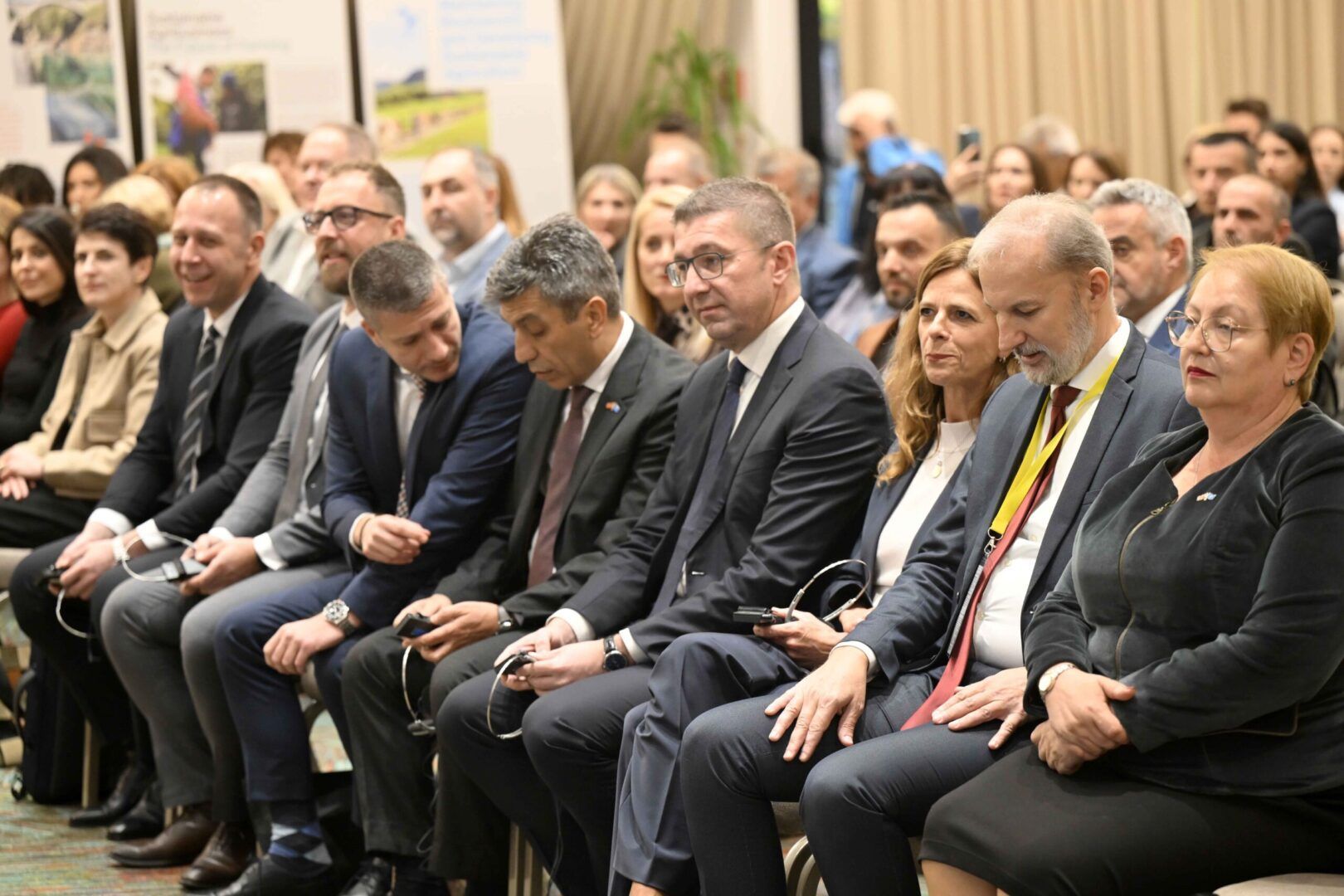
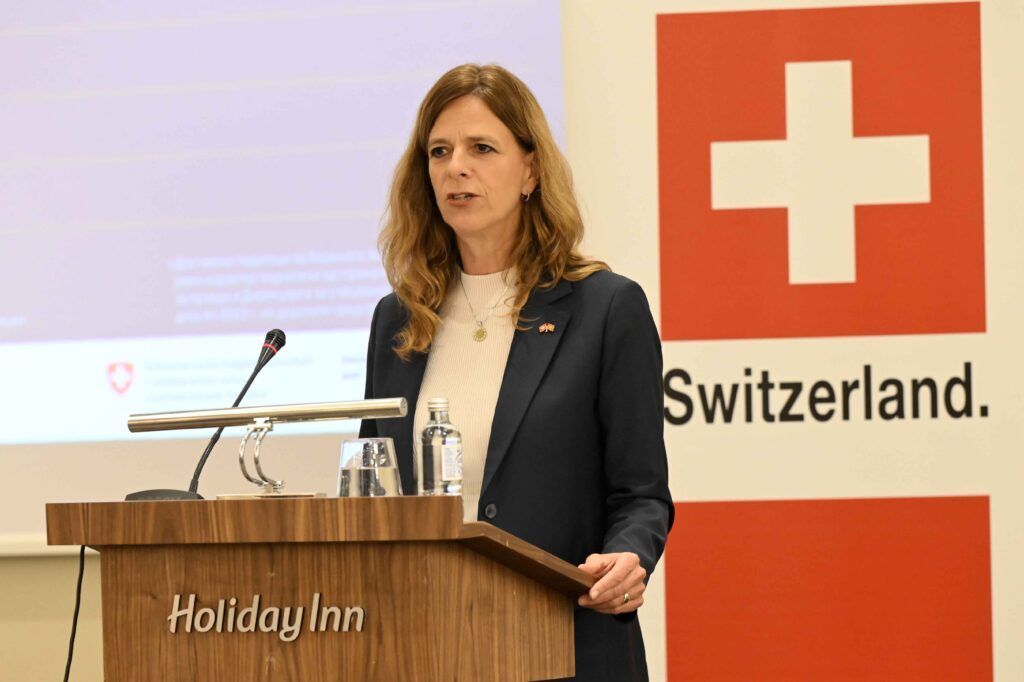

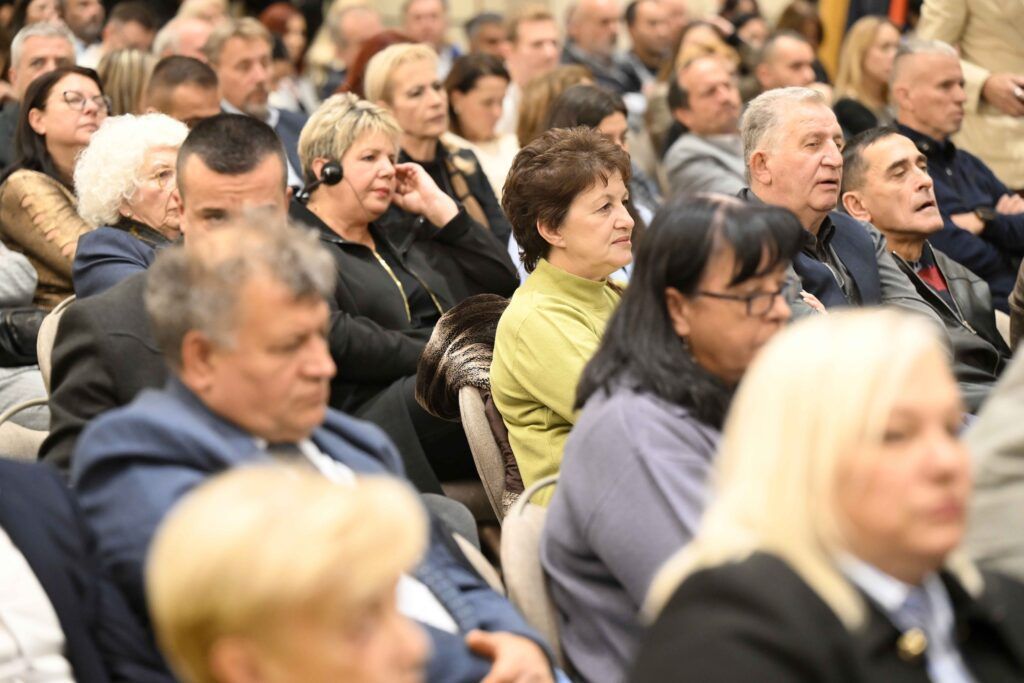


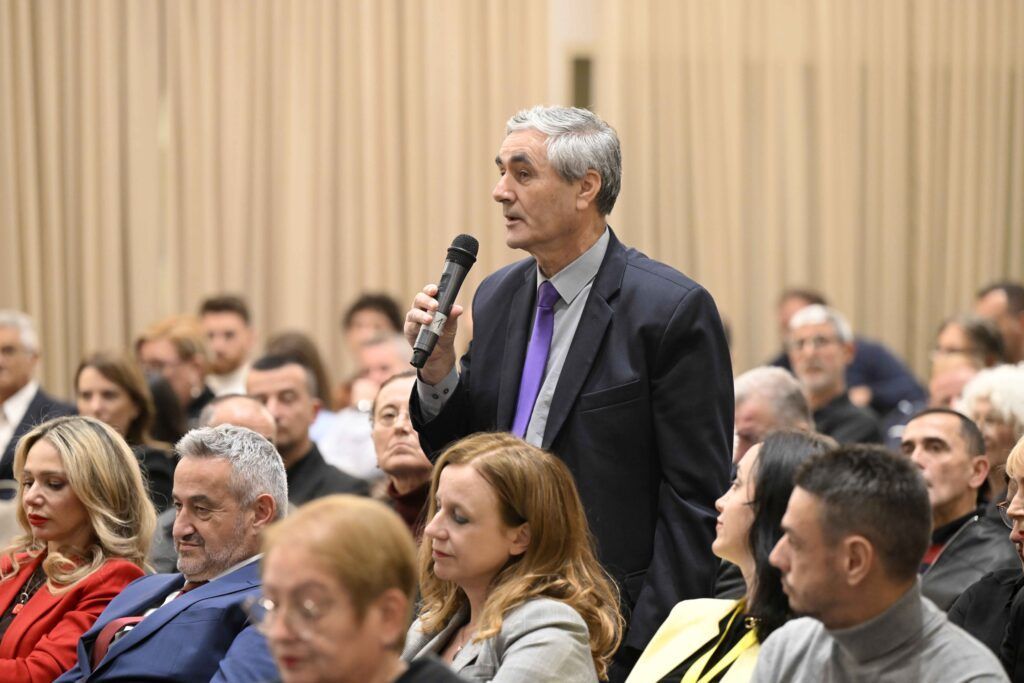
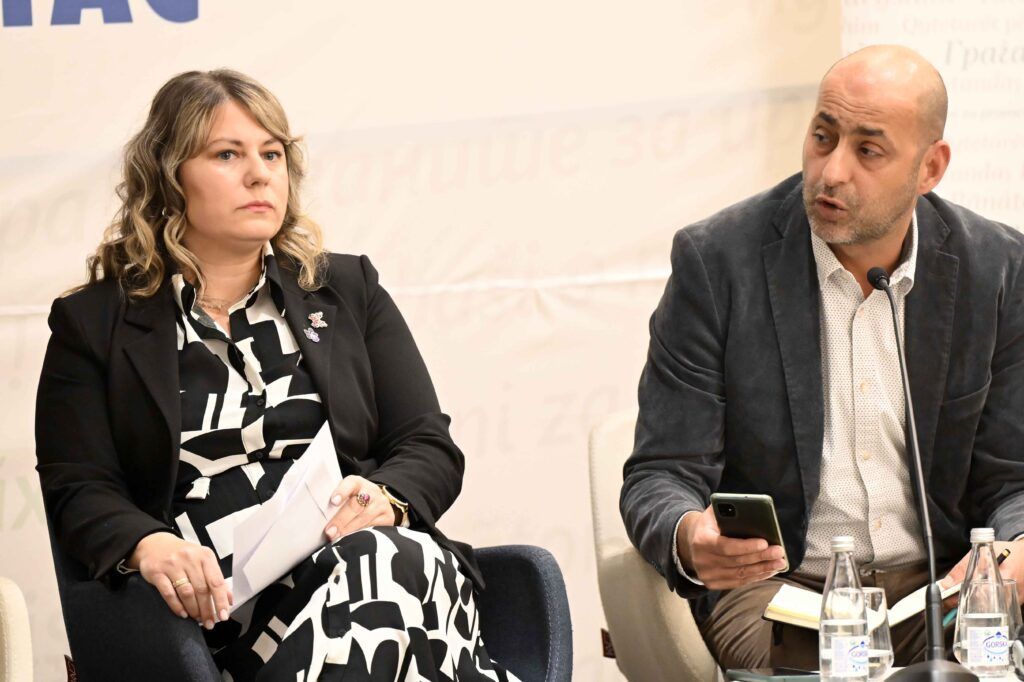
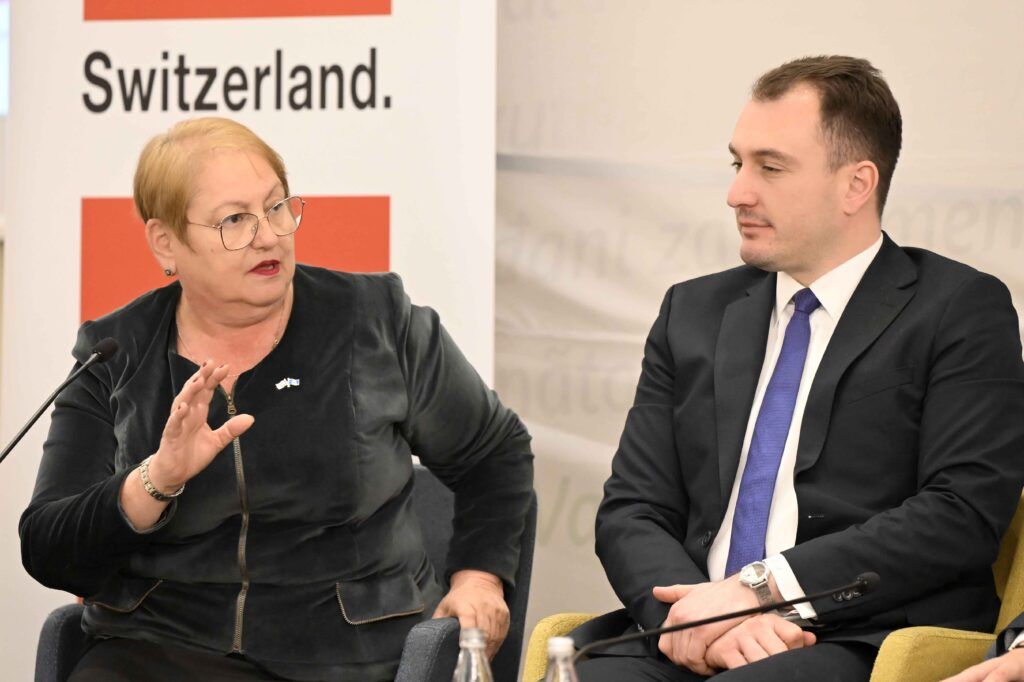
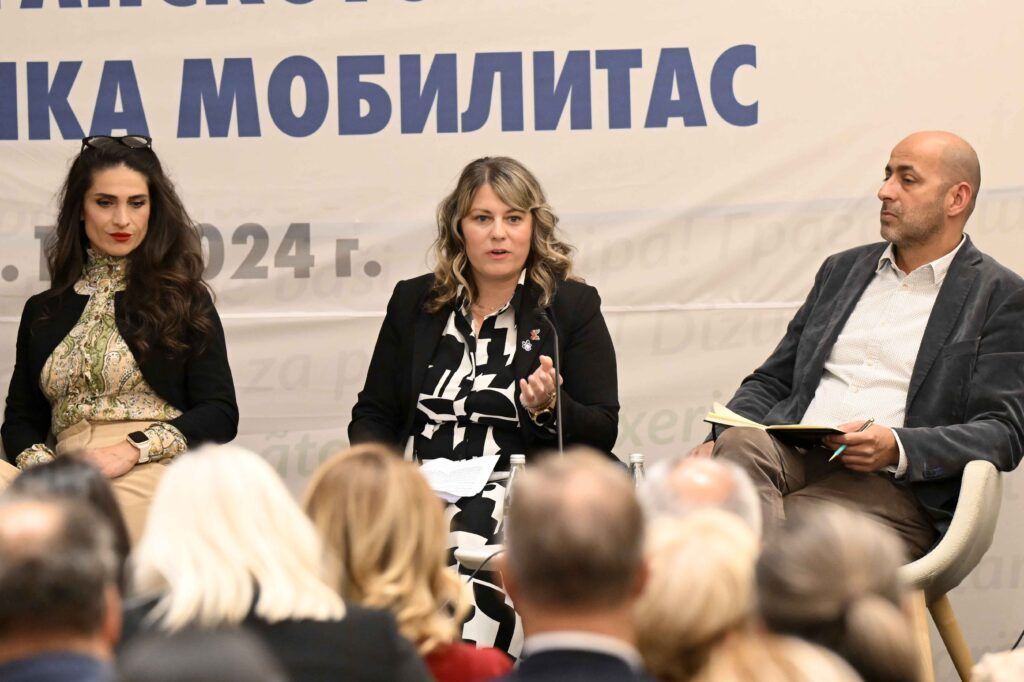
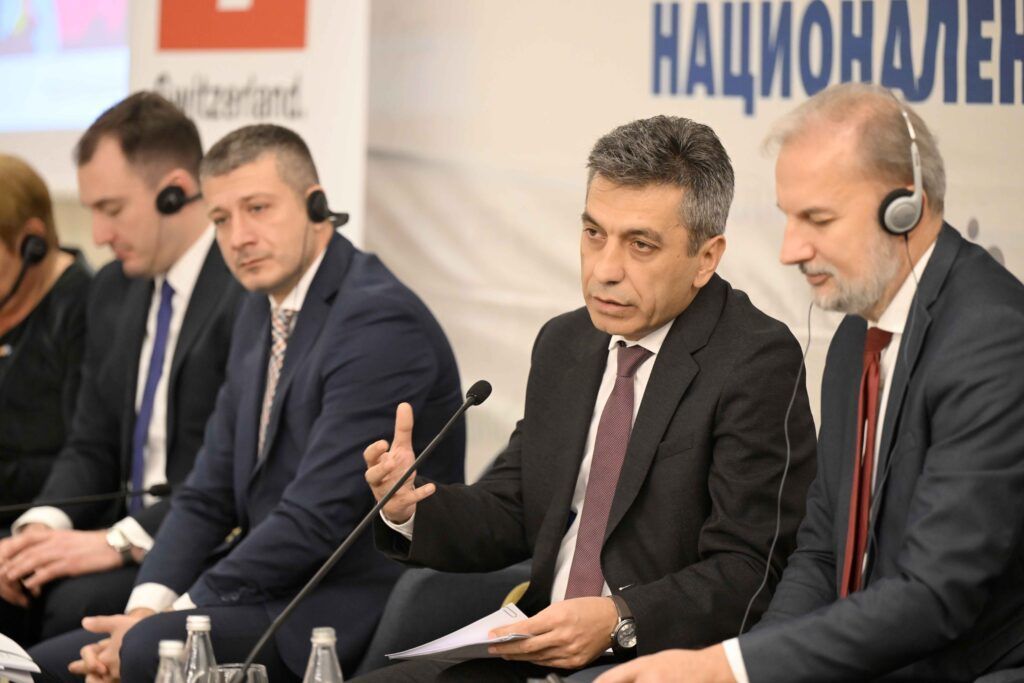




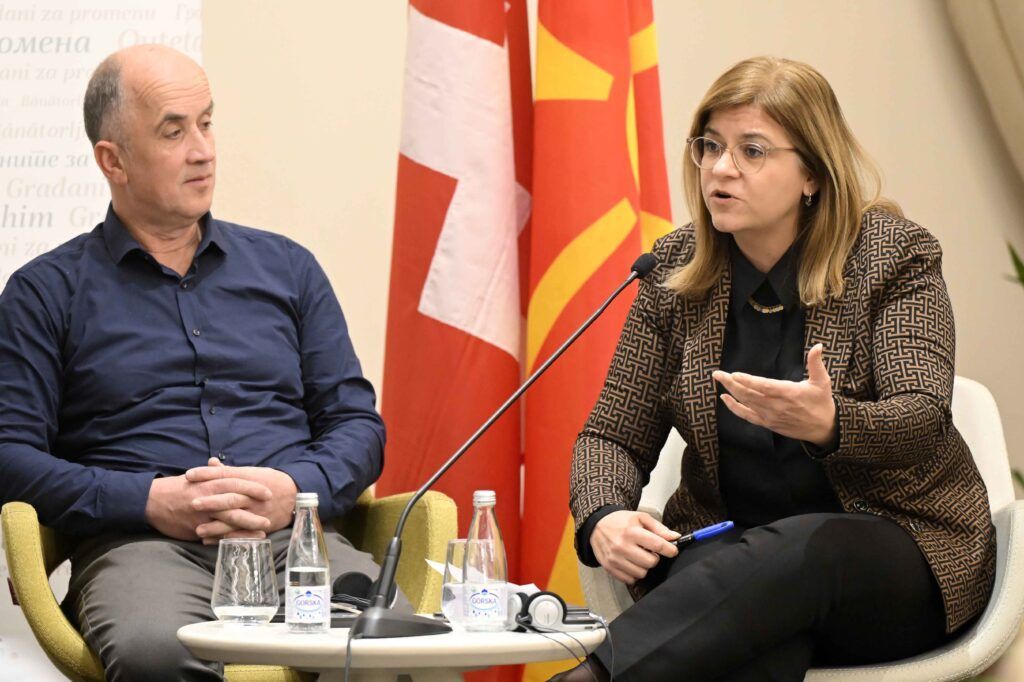
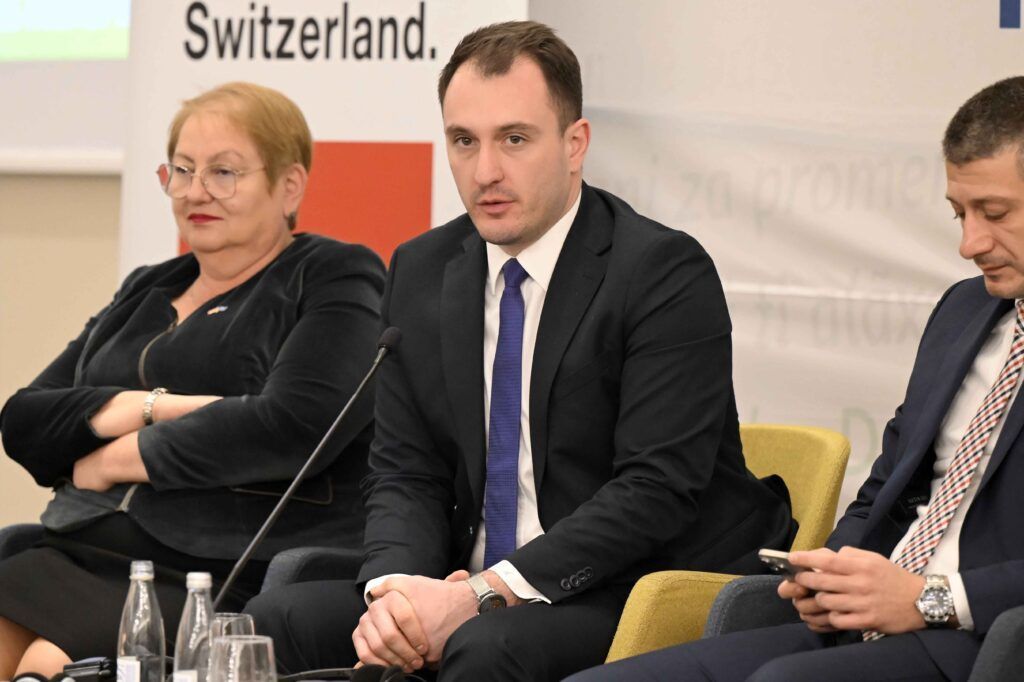

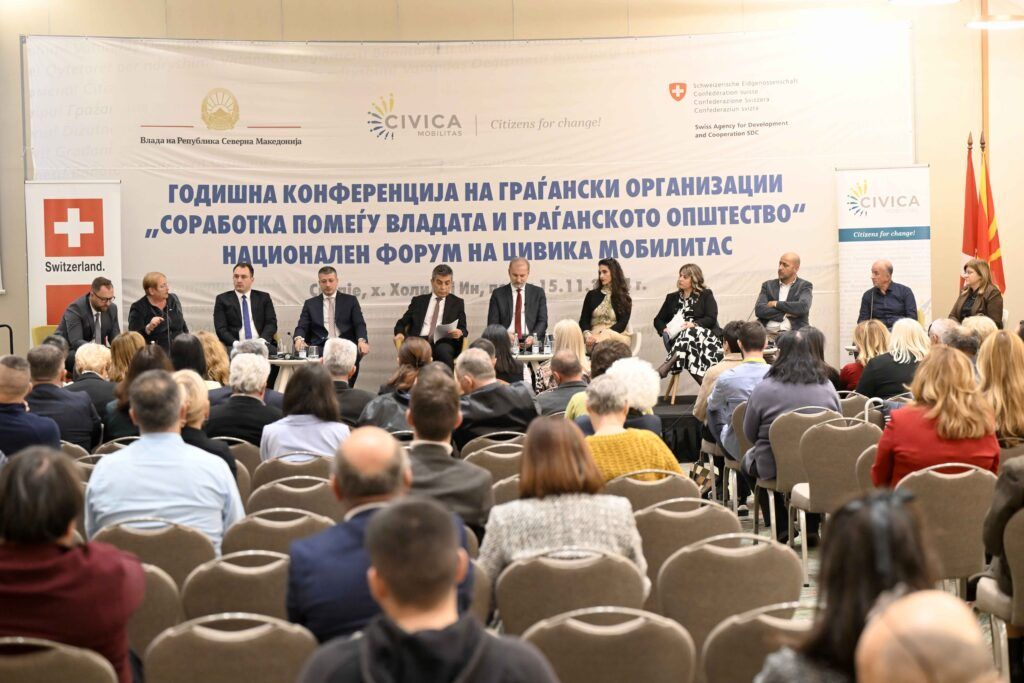

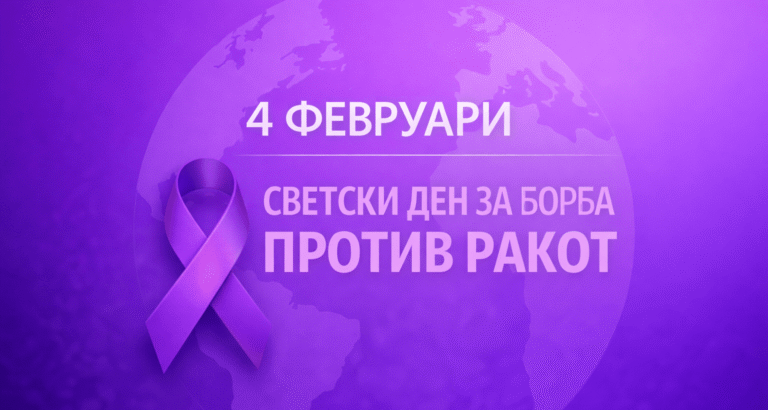

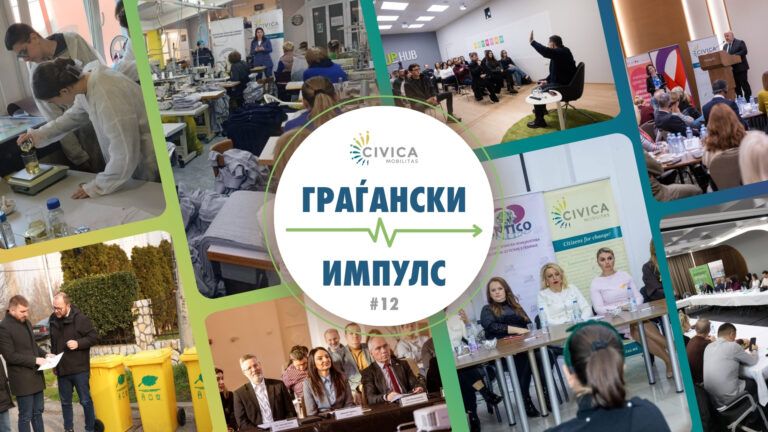
![Sre]ni praznici(2)](https://civicamobilitas.mk/wp-content/uploads/2025/12/sreni-praznici2-768x432.jpg)
